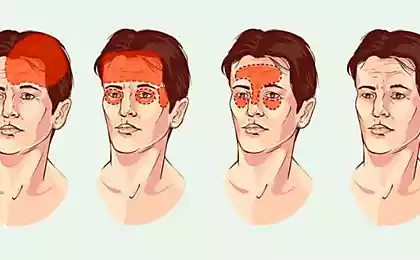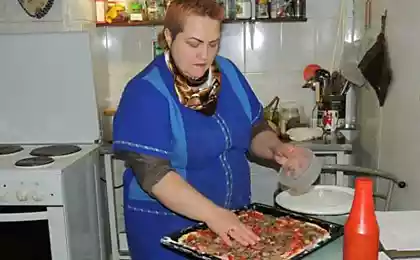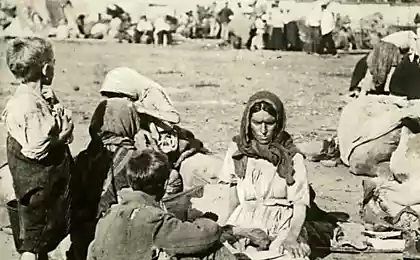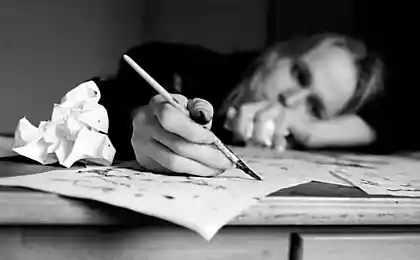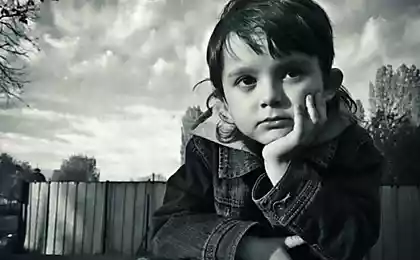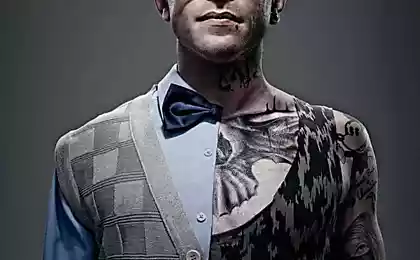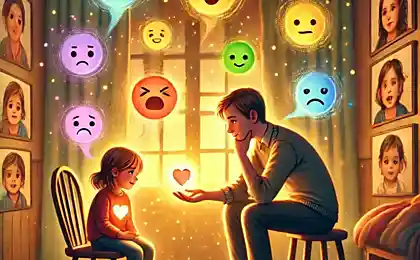266
Don't take away the right to tears from children!
It is normal to cry when it hurts.Yesterday, Grisha jumped on a mattress, did not calculate the trajectory a little and flew into the back of the bed. He hit me and cried. I grabbed him in my arms, pinned him to me, began to motion sickness, kiss and say: Grisha hurts, Grisha jumped high and hit himself. Give me a kiss of vava, etc. So we sat with him for five minutes. Then he calmed down, wiped away tears and looked at the cubes with interest: “Mom, let’s build a house!”
Well, actually, that's the end of the incident. It's okay. I didn’t mention “vava” anymore and jumping on the bed became more careful.
What I want to say and what I say insteadBut I want to tell you what happens to me as a mom when my baby is in pain. I'm in pain with him, and then I'm scared -- suddenly something serious, and then I scratch the guilt -- how did I not foresee it? Having experienced all this, I want to say to him: “Stop crying”, “Nothing terrible – everything will pass”, “I told you, and you.” .. ? All these words – to make it easier for me, my mother, to endure crying, and even better to stop these tears as soon as possible and shift the responsibility to the baby – are my fault.
But I, my mother, am an adult, and I know how to control the flow of words and not let them out. I'm big and I can handle it. And the baby doesn't. How can I help him? Embrace and live this pain and fear with him, voice his feelings (not his own) as he does not yet know how to do it, and let him cry as much as he needs.
It does not matter how old the child is or what gender he is. I mean, no "you're big, you're a boy." Grandmother has repeatedly caught on this - for some reason it seems to her that manipulating feelings of shame and guilt is a normal way to stop tears. I think that's how she was raised, and that's how she raised me -- it's hard to break stereotypes. And it's hard for me, but anything is possible.
"You can't cry." It usually crashed into a real mountain.I brought the rule “don’t cry” from childhood to adulthood, and this rule worked like this: in a state of grief – in the throat of a lump, it became difficult to breathe, while the mask “everything is fine” faded on my face. I could not cry even in front of a close friend, and alone I could hardly do it, as if I had to break a crust of ice, and then I began to cry. And even as I cried, I had time to think how ugly all this was, my voice seemed unpleasant, and I became ashamed. It's amazing that I was proud of this Iron Man mask and called it the ability to control emotions.
That mask broke once. There was an irreparable disaster – my close friend passed away. The grief was so great that it did not fit in the chest. I felt it like a tangle of barbed wire. That's how I learned to cry -- really, loudly, so I learned to live my grief.
It took me many years and a heavy bereavement to learn what all young children know how to do — unless they were told it was shameful, bad, or unimportant — to cry when it hurt.
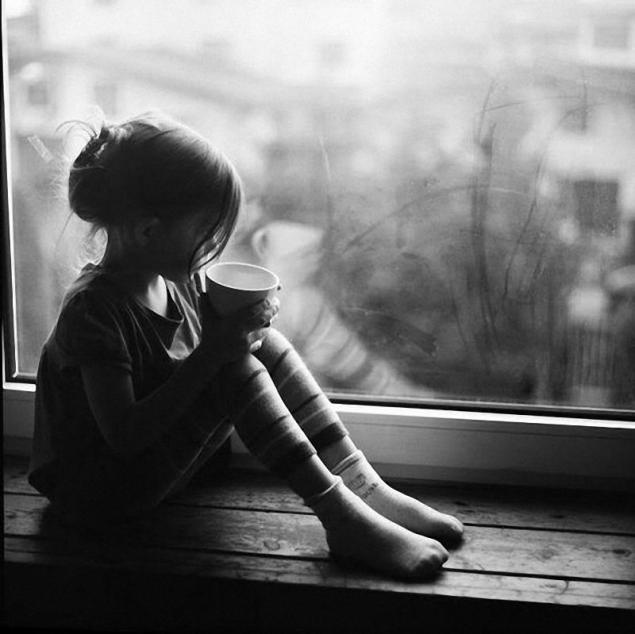
Why is a child entitled to tears?With the birth of my children, I began to discover new powers of empathy. I realized that I didn’t want my children to pick up these tangles of sharp needles and put iron man masks on their faces. I continue to learn to be a mother and every day I learn from my children to be natural, to live my emotions openly, to love myself and not to be ashamed of my feelings.
Don’t take away your child’s right to cry. Do not be afraid that he will grow weak, that he will not grow up and learn to be strong. It's not, and moreover, it's the opposite. The ability to live your grief in the arms of parents lays a basic trust in the world around you and teaches you to get out of stress with the least loss. That is strength and confidence. In addition, the ability to express one’s feelings eliminates many psychosomatic diseases in the future, as uncried, trapped pain on the physical level destroys our body. published
Author: Olga Gracheva
P.S. And remember, just by changing your consciousness – together we change the world!
Source: //www.ourbaby.ru/article/Rebenok-udarilsya-i-zaplakal-Chto-skazhet-i-sdelaet-mama/
Well, actually, that's the end of the incident. It's okay. I didn’t mention “vava” anymore and jumping on the bed became more careful.
What I want to say and what I say insteadBut I want to tell you what happens to me as a mom when my baby is in pain. I'm in pain with him, and then I'm scared -- suddenly something serious, and then I scratch the guilt -- how did I not foresee it? Having experienced all this, I want to say to him: “Stop crying”, “Nothing terrible – everything will pass”, “I told you, and you.” .. ? All these words – to make it easier for me, my mother, to endure crying, and even better to stop these tears as soon as possible and shift the responsibility to the baby – are my fault.
But I, my mother, am an adult, and I know how to control the flow of words and not let them out. I'm big and I can handle it. And the baby doesn't. How can I help him? Embrace and live this pain and fear with him, voice his feelings (not his own) as he does not yet know how to do it, and let him cry as much as he needs.
It does not matter how old the child is or what gender he is. I mean, no "you're big, you're a boy." Grandmother has repeatedly caught on this - for some reason it seems to her that manipulating feelings of shame and guilt is a normal way to stop tears. I think that's how she was raised, and that's how she raised me -- it's hard to break stereotypes. And it's hard for me, but anything is possible.
"You can't cry." It usually crashed into a real mountain.I brought the rule “don’t cry” from childhood to adulthood, and this rule worked like this: in a state of grief – in the throat of a lump, it became difficult to breathe, while the mask “everything is fine” faded on my face. I could not cry even in front of a close friend, and alone I could hardly do it, as if I had to break a crust of ice, and then I began to cry. And even as I cried, I had time to think how ugly all this was, my voice seemed unpleasant, and I became ashamed. It's amazing that I was proud of this Iron Man mask and called it the ability to control emotions.
That mask broke once. There was an irreparable disaster – my close friend passed away. The grief was so great that it did not fit in the chest. I felt it like a tangle of barbed wire. That's how I learned to cry -- really, loudly, so I learned to live my grief.
It took me many years and a heavy bereavement to learn what all young children know how to do — unless they were told it was shameful, bad, or unimportant — to cry when it hurt.

Why is a child entitled to tears?With the birth of my children, I began to discover new powers of empathy. I realized that I didn’t want my children to pick up these tangles of sharp needles and put iron man masks on their faces. I continue to learn to be a mother and every day I learn from my children to be natural, to live my emotions openly, to love myself and not to be ashamed of my feelings.
Don’t take away your child’s right to cry. Do not be afraid that he will grow weak, that he will not grow up and learn to be strong. It's not, and moreover, it's the opposite. The ability to live your grief in the arms of parents lays a basic trust in the world around you and teaches you to get out of stress with the least loss. That is strength and confidence. In addition, the ability to express one’s feelings eliminates many psychosomatic diseases in the future, as uncried, trapped pain on the physical level destroys our body. published
Author: Olga Gracheva
P.S. And remember, just by changing your consciousness – together we change the world!
Source: //www.ourbaby.ru/article/Rebenok-udarilsya-i-zaplakal-Chto-skazhet-i-sdelaet-mama/







